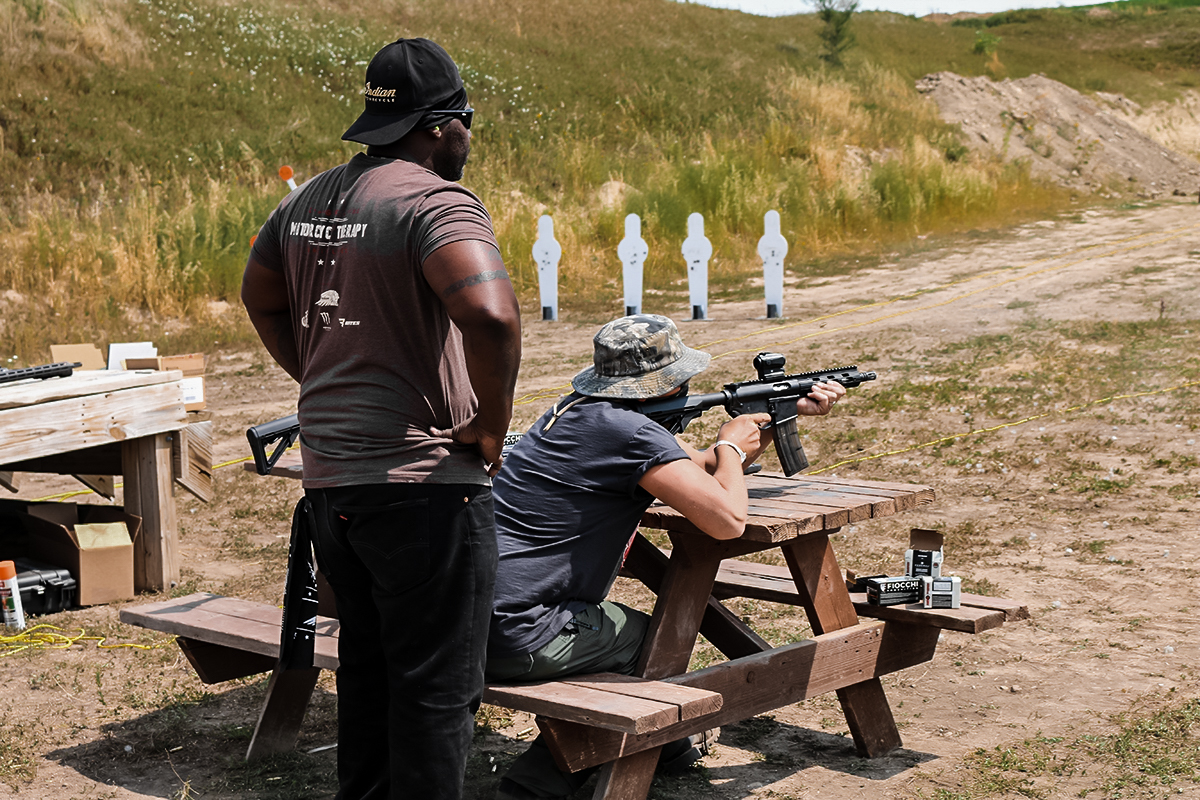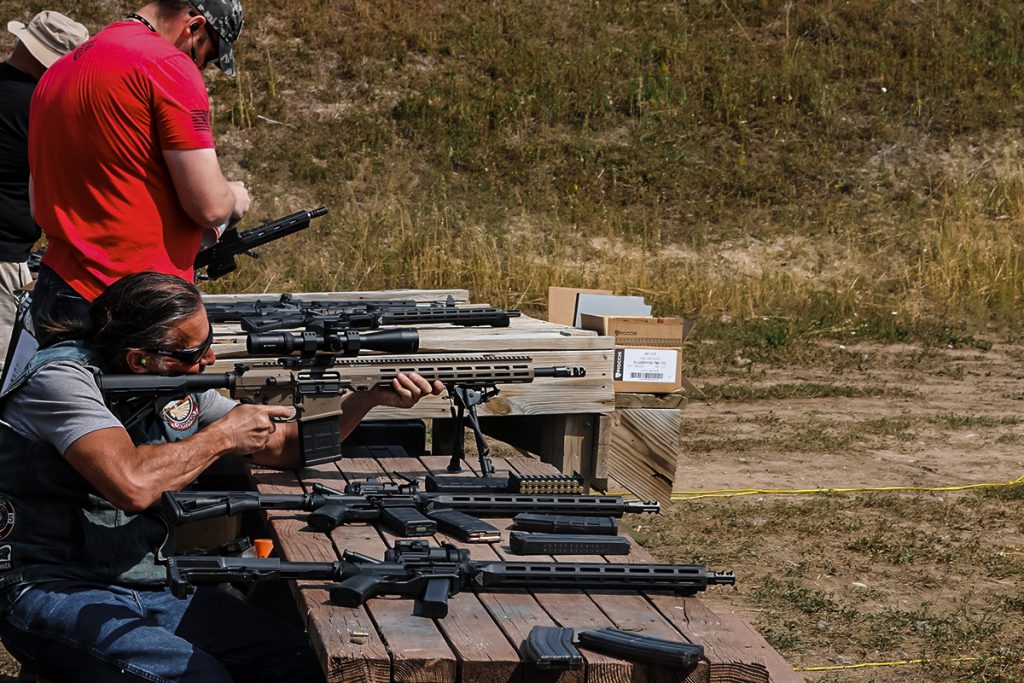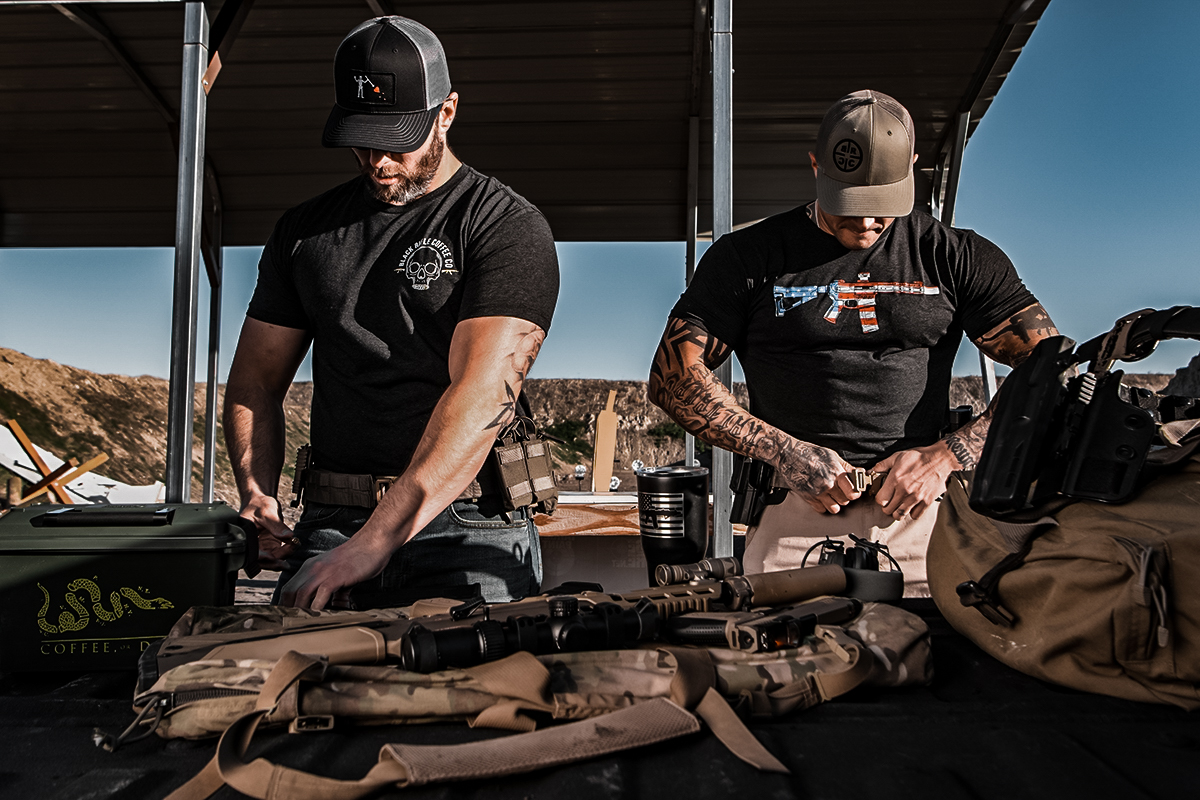The legislation that has significantly funded conservation efforts in the U.S. for nearly 100 years and has served as a crucial part of the North American Model of Wildlife Conservation is under attack, and some conservationists and experts in the gun industry worry that the assault from a Republican congressman is driving a wedge in the broad community of gun owners.
In June 2022, Rep. Andrew Clyde (R-GA) introduced the awkwardly named RETURN (Repealing Excise Tax on Unalienable Rights Now) our Constitutional Rights Act of 2022 (H.R. 8167). The legislation would repeal the excise taxes established by the Pittman-Robertson Act of 1937 and replace its funding for conservation efforts with revenue from offshore oil and gas drilling.
The bill currently has 54 cosponsors, all Republicans. Four Republican cosponsors have withdrawn their support since the bill’s introduction.
“There are no firearm manufacturers that are calling for the removal of this tax. The manufacturers, the outdoorsmen and women that support this tax through their purchases are proud that they are actively participating in wildlife conservation.”
— Mark Oliva, NSSF
The Pittman-Robertson Act directs industry and user-supported excise taxes on firearms, ammunition, and archery equipment to provide on-the-ground funding for wildlife conservation, target shooting range construction, efforts to increase public hunting access, hunter education programs, hunter and recreational shooting recruitment efforts, among other staple sporting-conservation programs.
Clyde argued that this tax is unconstitutional because firearm ownership is a constitutional right, and conservation efforts should instead be funded through funds generated by offshore drilling taxes.
On July 12, 2022, the Association of Fish & Wildlife Agencies (AFWA) sent an open letter strongly opposing the repeal of the Pittman-Robertson excise taxes that was cosigned by a bevy of wildlife, conservation, and hunting organizations like the National Shooting Sports Foundation (NSSF), the Rocky Mountain Elk Foundation, and the National Wild Turkey Federation, among others.
“After nearly a century of conservation success and bipartisan support, our system of funding conservation and shooting sports is at risk,” the letter said. “The RETURN Act, if enacted, would effectively cripple the Pittman-Robertson Act — the most significant wildlife conservation legislation in the United States and the foundational pillar of our ‘user-pays, public benefits’ American System of Conservation Funding. The bill would eliminate the 10-11% federal excise tax on firearms, ammunition, and archery equipment that funds conservation in America.”

In addition to the 10% tax on handguns and archery gear (added in the 1970s) and the 11% tax on long guns and ammunition, states match $1 for every $3 in P-R money.
“Since the Pittman-Robertson Act was enacted in 1937, the program has served as the bedrock funding program to increase and promote our hunting and recreational shooting heritage,” said the Congressional Sportsmen’s Foundation (CSF) in a statement. The organization also openly opposes Clyde’s bill. Evan Hafer, the founder of FRA‘s parent organization, Black Rifle Coffee Company, is a CSF board member.
P-R excise taxes contributed about $1.2 billion to conservation funding in 2021 (which Clyde called an anomaly), most of which came from gun and ammo sales.
“This legislation jeopardizes the important role maintained by sportsmen and women and threatens their seat at the decision-making table,” the CSF statement continued.
The 11% tax on long guns and ammo existed before the P-R was enacted. It was established in 1919, with all revenue going directly to the U.S. Treasury. It simply became the P-R excise tax in 1937, with the funds instead being distributed to states, which can use it only for specific purposes related to conservation and hunting.
2A Interest Pitted Against Hunting Interests

Clyde is pitching the bill to the GOP base as a piece of pro-Second Amendment legislation; he says because the Second Amendment is a constitutional right, it cannot be taxed. Therefore, the Pittman-Robertson Act, in his opinion, is unconstitutional as it stands and must be funded differently.
“For me, [the bill’s intent] is not to disconnect Pittman-Robertson from firearms; it’s to disconnect taxation from firearms and fund Pittman-Robertson,” Clyde said in an interview. “That’s the point here. I want to do both. I want to fund Pittman-Robertson, and I want to disconnect taxation from the Second Amendment because both need to be preserved. And when they’re connected like that, I think it gives a highway to eliminate the Second Amendment, and therefore eliminate Pittman-Robertson funding in its current form.”
Charles Whitwam is the founder of Howl for Wildlife, a nonprofit organization that provides streamlined tools and resources related to issues surrounding wildlife and hunting and fishing management. He told Free Range American that, while Clyde’s intentions may be good, they are misplaced and that hunters and shooters take pride in the fact that every time they buy ammo, guns, and archery equipment, they are funding the conservation of the habitat where they hunt and helping to preserve it for future generations.
“[Clyde] believes that the tax is a tax on an inalienable right, which is debatable,” Whitwam said. “It’s an interesting debate, but I look at it outside of the bubble. I think, you know, we’re taxed on life, liberty, and the pursuit of happiness every single day. So, you know, to, to just kind of pick on this and specifically on something that’s been so successful since 1937, doesn’t make a lot of sense.”
“If you go back to 1937, what the state of wildlife was back then — turkey and ducks and whitetail deer and all of that — there were hardly any of those animals around, generally because of market hunting. And then that changed through the North American Model and our funding practices,” Whitwam added. “Why fool with this now?”
Travis Thompson, a longtime guide, conservationist, and the host of the Cast and Blast Florida podcast, told Free Range American that repealing P-R taxes would be catastrophic to the North American Model. He recently interviewed Clyde about the RETURN Act on his podcast and took him to task over the assertion that his bill would help protect the Second Amendment while guaranteeing conservation programs more funds.
Will It Pass? Should It?

Thompson said he doubts the RETURN Act will ultimately go anywhere this time around, but that it or a similar bill could pass in the future. He says, at this point, aggressively opposing the RETURN Act is more about setting a precedent and telling lawmakers that this isn’t a platform they can use as a political football or to manufacture a wedge issue.
“When the news first broke, we all talked about it and said, ‘It will never happen.’ Then we found out how many Republican backers it had, and we’re like, ‘That’s a little strange,’” Thompson said. “If you were describing how important [P-R] is to the North American Model, you’re talking about the device that allows for us to exist.”
“Eighty, a hundred years ago, Aldo Leopold, the father of conservation, and Cecil Garland and all these guys got together and talked about gun taxes and how this was going to work,” Thompson added. “They said, we need to carve this out, and we’re going to pay it. Sportsmen recognize that we have to pay our share to make sure there are deer and quail and ducks and everything else.”
While some have claimed the RETURN Act is a retaliation against Rep. Dan Beyer’s (D-VA) recently introduced and largely absurd bill that would tax sales of semi-automatic firearms and any magazine that holds over 10 rounds of ammunition by 1,000%. While Clyde denied that’s why he crafted this bill — indeed work on the RETURN Act began before Beyer’s bill was introduced — he said the proposed 1,000% tax is an example of how Second Amendment rights could be readily taxed out of existence.
Still, the fact remains that the RETURN Act wouldn’t prevent such a thing by enshrining some edict that nothing associated with the Second Amendment can ever be taxed. It would simply remove a key component of a conservation model that is the envy of the world — and a government program that actually works as it was intended. That’s like shooting a unicorn.
And as Thompson and Whitwam both pointed out, Clyde’s argument doesn’t make much sense since constitutional rights are taxed on the regular in the U.S.
“I get taxed on the pursuit of life, liberty, and the pursuit of happiness. Every year I have to write a check to the IRS, and I’m not happy about that. And those are inalienable rights as well,” Thompson told Clyde during the interview. “If I stopped paying my taxes, I’m pretty sure no one’s gonna worry about taking those rights away from me. They’re gonna put me in jail, eventually.”

While Clyde contends that conservation programs would be better off with funding from offshore drilling, those in the outdoor community strongly disagree and say that the P-R is about more than just allocating funds — it’s also about making sure those funds can’t be reallocated elsewhere. Under the RETURN Act, conservation programs and initiatives would be competing with lots of other players for drilling money.
Mark Oliva, managing director of public affairs for the NSSF, the trade organization for the firearms industry, says taking the P-R excise taxes out of the wildlife conservation equation would be devastating to the successful efforts to conserve wildlife and habitat and thus ensure future generations of hunters and shooters can enjoy what we have today.
“There are no manufacturers out there publicly asking for this. No sportsman’s groups asking for this. There’s no wildlife agencies asking for this.”
— Travis Thompson, Host of the Cast and Blast Florida Podcast
“The Pittman-Robertson excise tax has been the backbone of steady funding that is truly dedicated to wildlife conservation and conservation of the habitats in which they thrive,” Oliva told Free Range American. “This is truly one of the few ‘lockbox’ taxes that exist. The funding generated from this excise tax can only be used for wildlife conservation and education efforts. Drawing money from the general fund would make federal wildlife conservation efforts have to compete in a long list of special-interest priorities that shift like the wind.”
Some have argued that there’s no reason gun owners and shooters who do not hunt should pay a tax that goes toward programs that benefit hunters, anglers, kayakers, hikers, campers, mountain bikers, and anyone else who enjoys the outdoors in any way. Indeed, 74% of P-R funds come from purchases not directly associated with hunting, according to Thompson.
He says anyone who thinks gun and ammo prices will drop if the tax is repealed is living in a fantasy.
“Tell me, tell me a scenario we’re in where that isn’t going to get absorbed by the manufacturer, by the gun shop owner — someone somewhere is going to make that money because prices don’t go down. It’s just not the world we live in anymore,” Thompson said. “I mean, that’s a little bit of a Pied Piper fallacy […] it just doesn’t hold water.”

Drilling Money an Easy Substitute for P-R Taxes?
As Oliva pointed out, saying the elimination of the P-R tax revenue would be plugged by drilling taxes isn’t as simple as all that, especially at a time when the future of fossil fuels is cloudy at best.
“There has been over $15 billion contributed in the life of this tax. This has been a steady source of funding. The notion that oil and gas dollars will fill the gap is a dubious bet, especially when we’re dealing with an administration that is bent on eliminating the oil and gas industry,” Oliva said.
“That would also make wildlife conservation projects have to compete with other spending priorities. Our wildlife deserves priority attention. The North American Wildlife Conservation Model is the envy of the world because we placed this high priority on ensuring it is protected and funded,” he added.
Gun Manufacturers Don’t Want This, Neither Do Wildlife Orgs

The question must also be asked: Aside from Clyde and the RETURN Act’s cosponsors, who asked for this?
Certainly, none of the cosigners of the AFWA letter did. Thompson asked Clyde directly what stakeholders he consulted while he was drafting the RETURN Act, noting that most prominent hunting and outdoor organizations signed the letter opposing it. Clyde implied that while those organizations may not support his bill, firearm manufacturers do.
“Ducks Unlimited is on that list, Rocky Mountain [Elk Foundation] is on that list [of organizations that cosigned the AFWA’s opposition letter], NSSF’s on that list, Delta Waterfowl is on that list, NWTF is on there; everybody’s on that list, who did you connect with from any of those organizations?” Thompson asked Clyde.
“There’s no [gun] manufacturers on that list, though, are there?” Clyde responded.
“Well, the NSSF is on that list, which represents a large portion of the gun industry,” Thompson said.
“But that’s not a manufacturer,” Clyde said. “I engaged with the National Rifle Association (NRA). I engage with the NSSF, okay. Those are the folks that I know, and I know well. But I would never have thought that the wildlife folks would be against an increase in funding, and year-to-year increase in funding, average funding, for Pittman-Robertson.”

The NRA also signed the letter opposing Clyde’s bill, and again, so did NSSF.
“There are no firearm manufacturers that are calling for the removal of this tax,” said the NSSF’s Oliva. “NSSF’s Board of Governors is composed of firearm and ammunition manufacturers. NSSF opposes this legislation.”
“The manufacturers, the outdoorsmen and women that support this tax through their purchases are proud that they are actively participating in wildlife conservation,” Oliva added. “Legislation like this sends the wrong signal that elected representatives aren’t in touch with the priorities of those who sent them to Washington, D.C.”
Thompson echoed Oliva’s statements.
“There are no manufacturers out there publicly asking for this. No sportsman’s groups are asking for this. There’s no wildlife agencies asking for this,” Thompson said.
Dangers of Divorcing Firearms From Conservation
Many have brought up the fact that this would create a disconnect between hunting, firearms, and conservation. This is best illustrated by the fact that Wildlife for All, a vehemently anti-hunting nonprofit organization, came out in support of separating firearms from conservation, which is precisely what the RETURN Act seeks to do.
Clyde said that if Democrats are able to pass more taxes on firearms, using Beyer’s showboat bill as an example, then P-R would lose all of its funding anyway, which eventuality might as well be headed off at the pass by adopting his bill.
Again, the RETURN Act does not prevent any future legislation from establishing taxes on guns or ammo at the federal or state level — Clyde argues it would set a legal precedent, but that would be something for the courts to potentially decide.
“The danger is that politicians might create a disconnect from what conservationists are working to achieve and politically expedient slogans that don’t actually achieve their stated goals,” Oliva said.
For information on how to email your representative to voice your opposition to the RETURN Act, go to Howl for Wildlife’s action page.
READ NEXT – Pump Shotguns Banned in New York State








Comments